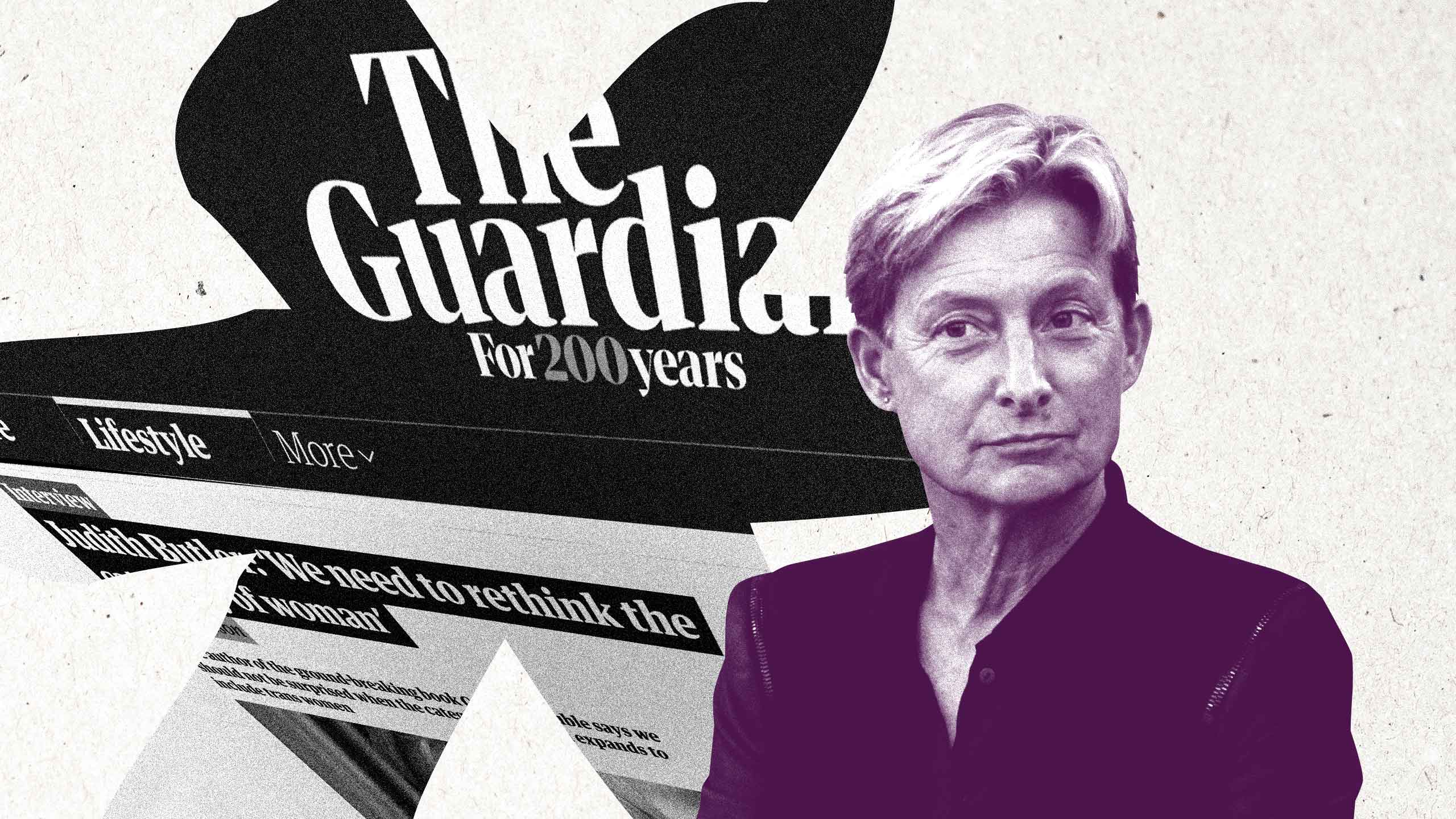
Hi there, Ziya Jones, Xtra’s senior health editor, here. Fall weather has hit my city, Montreal, and maybe yours, too. So grab a warm drink and settle in, we’ve got news to get to.
If you haven’t yet had a chance, I highly recommend subscribing to our newsletter Xtra Weekly, where you’ll find everything you need to know about what’s gay and good.
What’s the buzz 🐝?
On Tuesday, the Guardian published an interview with Judith Butler, a philosopher who penned the groundbreaking Gender Trouble—a book that popularized the concept of gender as performance—30 years ago. The interview covered a lot of ground, from the evolution of radical gay and lesbian politics to the time Butler was burned in effigy by a group of evangelical Christians in 2017.
The interview quickly went viral, with many sharing one passage in which Butler critiques TERFs and “gender criticals.” Interviewer Jules Gleeson asked: “It seems that some within feminist movements are becoming sympathetic to these far-right campaigns. This year’s furor around Wi Spa in Los Angeles saw an online outrage campaign by transphobes followed by bloody protests by the Proud Boys. Can we expect this alliance to continue?”
“The anti-gender ideology is one of the dominant strains of fascism in our times” Butler said in response.
“So the TERFs will not be part of the contemporary struggle against fascism, one that requires a coalition guided by struggles against racism, nationalism, xenophobia and carceral violence, one that is mindful of the high rates of femicide throughout the world, which include high rates of attacks on trans and genderqueer people.”
It wasn’t long before those same TERFs began to voice their dissent online. Then, just hours after the piece was published, the Guardian deleted both the response and the question that had prompted it. The paper left a frustratingly vague editor’s note: “This article was edited on 7 September 2021 to reflect developments which occurred after the interview took place.”
The “developments” were related to Wi Spa patron Darren Merager, who was charged with indecent exposure last week and a warrant was issued for her arrest.
While Gleeson suggested the paper revised the question to reflect another example of TERFs teaming up with the far-right (and reinstate Butler’s answer), the Guardian opted to remove the entire passage.
What were we thinking 📰?
Butler was not being hyperbolic when they said that TERFism and gender-critical ideology are intertwined with facism. Media has long reported on the connections between TERFs and white supremacists, QAnon zealots and the religious far-right. You can’t fight against a force you are fighting alongside.
And it’s worth noting that paragraphs of text disappearing from an article published in a national publication seems to be of no concern to online TERFs. Suddenly, some of the internet’s most ardent free-speech warriors have fallen silent. Odd, some might think, given that “gender-criticals” are quick to call censorship the moment someone in their ranks get criticized for, say, comparing support of children who are questioning their gender to children being experimented on in Nazi Germany.
In truth, it comes as no surprise that TERFs do not truly value or wish to defend freedom of speech. Calls for the preservation of freedom of expression have long been co-opted as rhetorical shields against accusations of a dominant group’s own bigotry. Why do the deep-digging, uncomfortable work of questioning your fears when you can be righteous? And what is a moral panic without a splash of hyperbole?
Handwringing about gender and “transgender ideology” has become one of the most prevalent moral panics of our time. And like with any panic, the media has, and will continue to, play a significant role in determining how trans people are perceived and treated. The Guardian’s U.K. edition itself does not have the best track record. As TERFism and anti-trans sentiments thrive in the U.K., the publication has become known as a safe space of sorts for op-eds that question and reject trans rights and trans activism. Members of the publication’s U.S. team even spoke out against their U.K. counterparts’ stance on trans rights in 2018.
These moral panics cause real violence towards those they target. This was a record-breaking year for both anti-trans legislation and anti-trans violence.
Incidents like these serve as a reminder of how important independent queer media and LGBTQ2S+ media workers still are. Our stories need to be told—without interference from those who wish to oppress us.
In other Xtra news 🌎
👉Writer KC Hoard struggled with his own eating disorder for years. He discovered that while LGBTQ2S+ folks are far more likely than their cis and straight counterparts to develop eating disorders, peer support can kickstart recovery.
👉Check out these seven kids shows that got LGBTQ2S+ representation right.
👉OnlyFans has reversed course and opted to continue to allow adult content on its site. Now, LGBTQ2S+ sex workers are calling out Mastercard’s adult content policies.
👉Member of Homeshake and Nap Eyes, Brad Loughead shares why he felt musically reawakened by Montreal’s queer party scene.
👉Want more headlines? Subscribe to Xtra Weekly.
Gifbox
Reading is fun-demental!



 Why you can trust Xtra
Why you can trust Xtra


